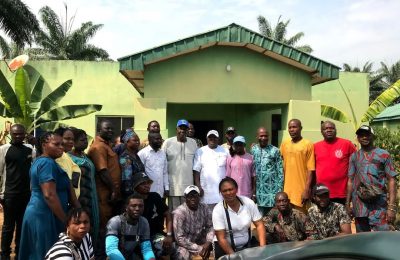

Stakeholders at the 7th Seedconnect Africa held in Abuja with the theme ‘Leveraging Seed Technology to Scale Up Africa’s Agricultural Productivity’ recently championed the adoption of technologies in Africa’s seed system, which is expected to scale up agricultural productivity in the continent.
The Seedconnect Africa is an annual conference and exhibition organized by the National Agricultural Seed Council (NASC) where stakeholders in the seed subsector across Africa chart way forward on Africa’s seed system.

The Minister State for Agriculture and Food Security, Senator Aliyu Abdullahi while citing the International Food Policy Research Institute (IFPRI), said yields of staple crops like maize, rice, and sorghum in sub-Saharan Africa are among the lowest in the world, often less than half the global average.
The Minister said this disparity underscores the critical role that seed technology must play in bridging the productivity gap. He said seeds are the foundation of agricultural systems.
“As the primary input in farming, they influence every subsequent stage of the production cycle. High-quality seeds, adapted to specific agroecological conditions, are the cornerstone of achieving higher yields, ensuring food security, and building resilience against climate change.
“The global seed market, valued at over $60 billion, continues to grow, driven by innovations that offer genetically enhanced, climate-resilient, and pest-resistant seed varieties. For Africa, however, the challenge lies not just in developing these technologies but in ensuring their accessibility to the smallholder farmers who form the backbone of our agricultural sector”, he said.
Senator Abdullahi further noted that in Nigeria, agriculture remains a cornerstone of the economy, contributing approximately 25% of GDP and employing over 70% of the rural population.
He said despite its centrality, the sector has been plagued by low productivity, poor infrastructure, and systemic inefficiencies, particularly in the seed value chain.
The Minister further stated that for decades, Nigerian farmers have faced significant barriers to accessing high-quality seeds, including high costs, limited distribution networks, and inadequate awareness of the benefits of improved seed varieties.
He said addressing these challenges has been a key focus of this administration’s agricultural agenda, which recognizes that transforming the seed sector is vital to achieving food security and reducing rural poverty.
The Speaker of the House of Representatives, Tajudeen Abbass in his address, said the journey of agriculture is intrinsically linked to the evolution of seeds.
The Speaker, who was represented by the Chairman of the House Committee on Agriculture Colleges and Institutions, Akeem Adeniyi Adeyemi, said from the dawn of civilization, mankind has relied on seeds as the foundation for food security and economic stability.
He said to truly harness the potential of agricultural innovations, it is important to ensure that farmers have access to seeds that meet specific quality standards, and genetically pure seeds with high germination rates and vigor.
“The health and purity of seeds directly impact agricultural productivity; without them, even the most advanced techniques will yield suboptimal results.
“Seed technology stands as a cornerstone in modern agricultural transformation. Modern crop varieties are meticulously bred for specific improvements: they respond optimally to inputs such as fertilizers and water management techniques; they yield higher outputs; they possess resistance to pests and diseases that threaten our crops; and they are adapted to local climatic conditions.
“By leveraging these advancements in seed technology, we can empower our farmers to become efficient producers capable of meeting both local and global food demands.
“Seed technology is, therefore, at the heart of scaling up agricultural productivity in Africa. Developing and disseminating high-yielding, drought-resistant seed varieties can transform our farming practices and increase food security across the continent. Innovations in biotechnology offer promising avenues for creating seeds that are not only resilient but also tailored to meet the specific climatic challenges faced by different regions within Africa.
“To pave the way for integrating high-yield crops into our agricultural practices, we need comprehensive enlightenment initiatives and robust educational campaigns aimed at local farmers and communities,” the Speaker added.
Earlier, the Director General of NASC, Dr Khalid Ishiak, in his opening address, said the 7th edition of Seedconnect 2024 is seeking a new level of freedom and change to mitigate impacts on agriculture and build a resilient seed system in Africa through the application of appropriate technologies.








